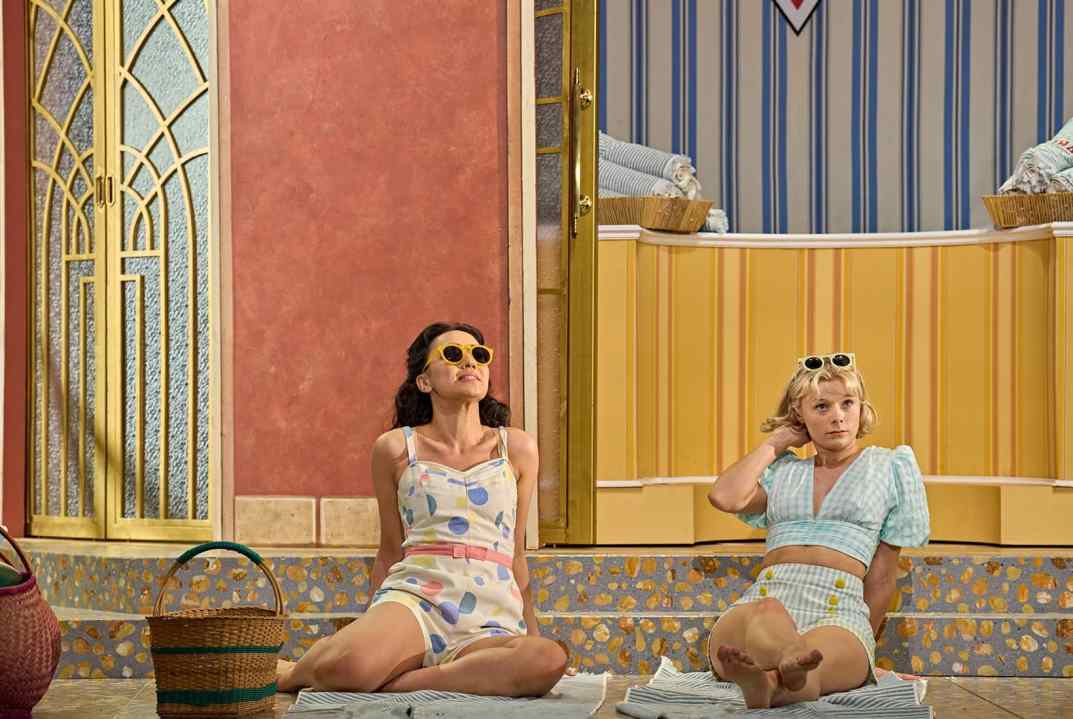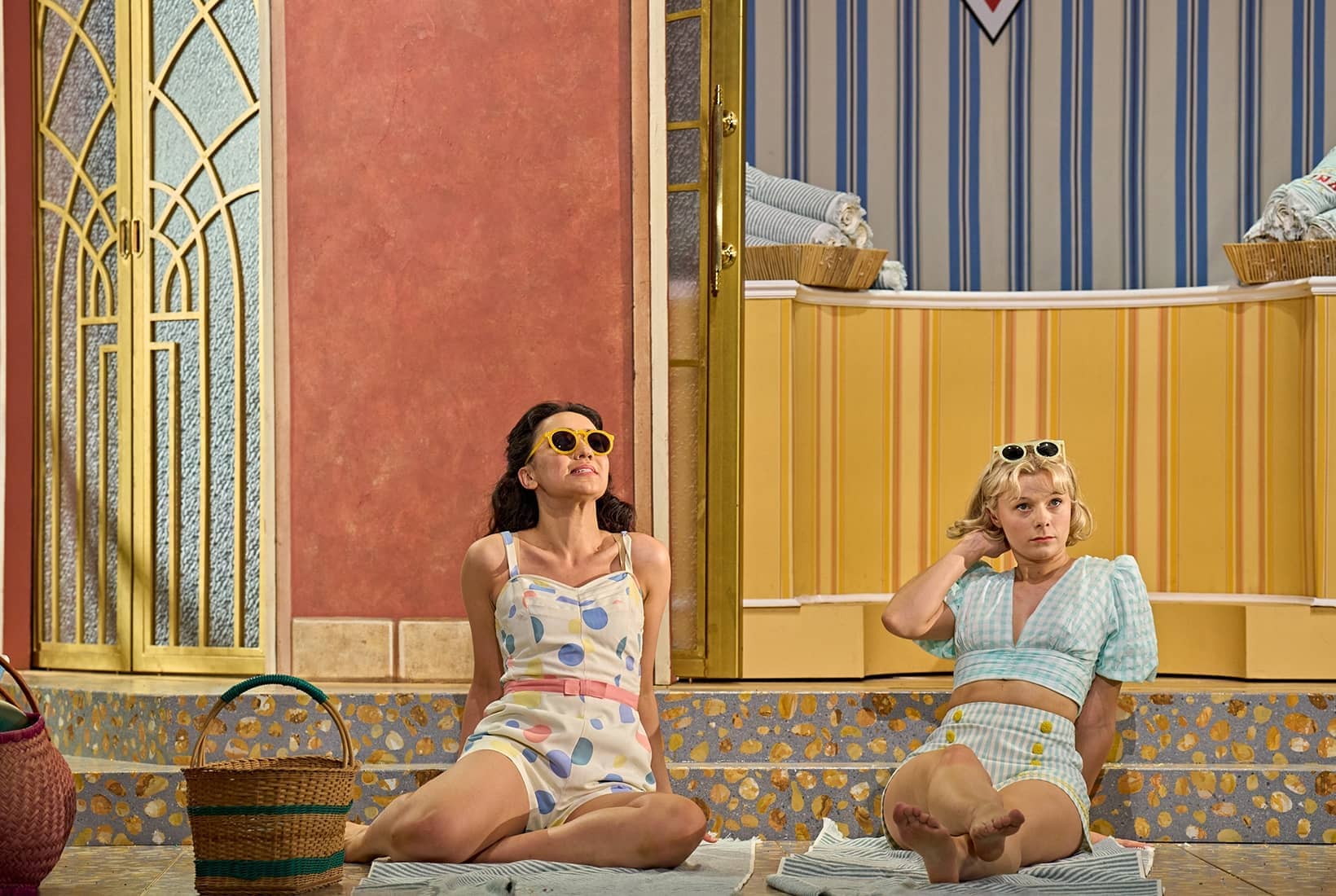Simon Godwin’s Much Ado About Nothing is set in a steamy Italian holiday resort, the Hotel Messina, in the 1920s. A smart move, design-wise. The jazz age was one of those rare moments in history when every member of society, from the lowliest chambermaid to the richest aristocrat, dressed with impeccable style and flair. The show is stupendously good to look at it and it kicks off with a thrilling blast of rumba music from a jazz quartet on the hotel balcony. Even sceptics of jazz need not fear these players. The musical score is a triumph for one simple reason: there are no jazz solos.
The comic passages of the play are performed imaginatively enough although some of the stunts – the collapsing hammock and the dodgy ice-cream trolley – become a bit repetitive. Hero’s rejection at the altar and the plot to fake her death are done with real, heart-rending emotion. It’s unusual to see such deep passions emerging from these melodramatic scenes.
You’ll wait years to see a better Benedick
John Heffernan plays Benedick with a wonderfully relaxed informality. He’s strange to look at. Geeky, weak-kneed at times, but he happens to be tall and handsome too, with a nimble physicality. He strikes a perfect balance between the hero’s virile swagger and his melancholy, ruminative nature. You’ll wait years to see a better Benedick. Katherine Parkinson delivers Beatrice’s verbal bullets with impish drawling aggression – but she’s not always fully audible.
David Judge plays Don John as a taut, wound-up gangster with strong hints of Salford in his voice. Which is fine on its own, but it doesn’t suit the setting. How many Mancunian bad boys would you meet on the Italian Riviera in the days of Hemingway and Fitzgerald?
Eben Figueiredo plays the shifty, preening Claudio with a London ‘roadman’ accent.










Comments
Join the debate for just £1 a month
Be part of the conversation with other Spectator readers by getting your first three months for £3.
UNLOCK ACCESS Just £1 a monthAlready a subscriber? Log in